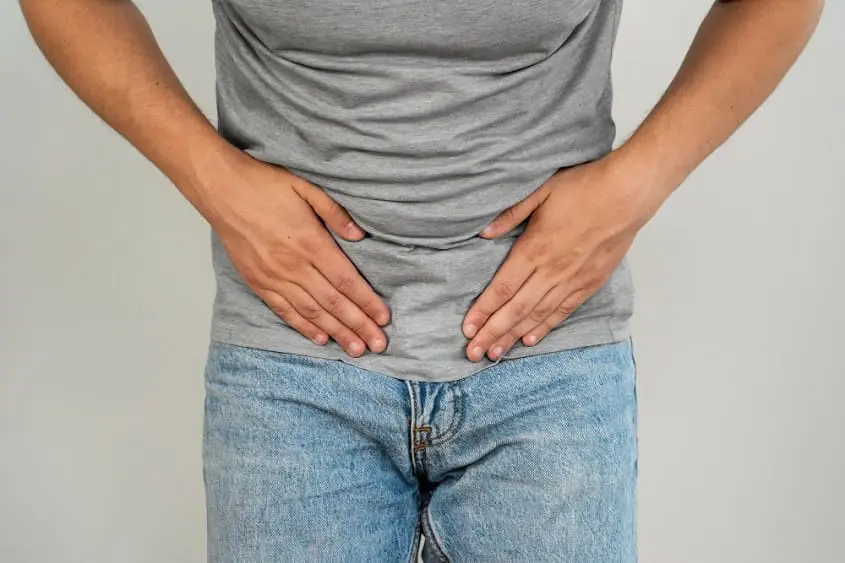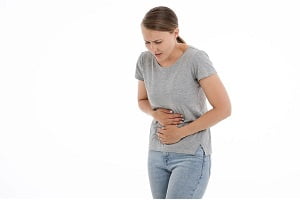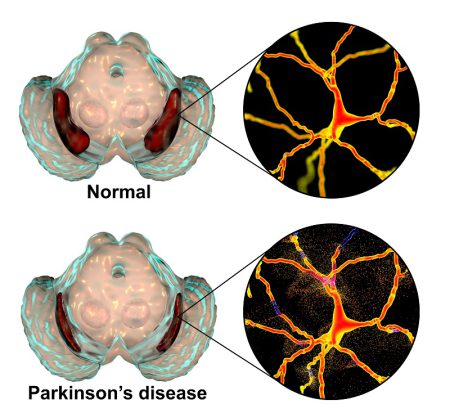Chronic Cystitis Treatment
- Updated on: Apr 19, 2020
- 4 min Read
- Published on Apr 19, 2020

Understanding Chronic Cystitis
Chronic cystitis refers to the inflammation of bladder. This causes burning sensation and pain in the pelvis, and a frequent urge for urination.
Cystitis can become a serious health issue if the infection spreads to the kidney. The exact cause of this condition is still unknown. The symptoms that usually occur with chronic cystitis are:
- Lower or back pain
- Fever
- Nausea and vomiting
- Painful urination with burning sensation
- Bladder pressure
How is Chronic Cystitis Diagnosed?
You should visit a doctor immediately if you feel back pain, pelvic pain, nausea, fever, vomiting and painful urination.
Your doctor will initially ask about your signs and symptoms and review your medical history. The doctor may suggest some tests to rule out the confusion between bladder cancer and cystitis. The specific tests include:
Urine Test
For a urine test, your doctor may ask you for urine sample to identify bacterial colonization, blood or pus in urine.
Cytoscopy
To perform cystoscopy, a doctor usually inserts cystoscope (a thin tube with a light and camera) via urethra into your bladder. He can remove the sample tissue for biopsy using cystoscope. This test is usually done if you got cystitis symptoms for the first time.
Imaging Tests
Imaging tests are usually not required for cystitis but when there is no evidence of cystitis infection, it can be recommended. In such a case, imaging can prove useful. X-ray and ultrasound can help the doctor to identify potential cause of urinary bladder inflammation such as bladder structure abnormality or a tumor etc.
How is Chronic Cystitis Treated?
Chronic cystitis is caused due to a bacterial infection and can be treated with some antibiotics. However, the treatment for non infectious cystitis depends on its underlying cause.
Treatment of Infectious Cystitis
Doctors usually recommend antibiotics which is the first line treatment of infectious cystitis. Urine test helps in determining which drug could treat cystitis and for how much time the dose should continue.
First line treatment
After taking antibiotic treatment, cystitis symptoms can improve very fast. However, you may require to continue antibiotics for 3 days to a week, depending on the severity of cystitis infection.
It does not matter for how long the treatment is required. You have to take the course of antibiotics as prescribed by the doctor if you want to cure cystitis completely.
Repeat Infection
If you have a history of urinary tract infection, your doctor may continue your antibiotic treatment for a longer duration.
Your doctor may also refer you to other doctor who has specialization in urinary tract disorders, for further testing and evaluation to examine if there is any other urologic abnormality. For some women, even a single dose of antibiotic after sexual intercourse may prove helpful. However, they must take medicines as prescribed and should not stop early even if they feel better unless the doctor recommends.
Hospital-Acquired Infection
It is very hard to treat hospital-acquired infections because bacteria that are found in hospitals are mostly resistant to several common antibiotics that are generally used to treat community acquired bladder infections. For such types of condition, different types of antibiotics and different treatment approaches are required.
Post menopausal women are more prone to chronic cystitis because they have estrogen deficiency. This deficiency plays a great role in bacterial development and therefore recurrent urinary infections also occur in them. Such women are usually recommended a vaginal estrogen cream.
The cause of inflammation is not known in interstitial cystitis. There is not any specific treatment that can help in reducing the interstitial cystitis.
Medications that are recommended to treat chronic interstitial cystitis include:
- Amitriptyline controls bladder spasms and can be used as an oral medication for cystitis.
- Pentosan may help in rebuilding the bladder tissue lining which has disrupted due to the infection.
- Hydroxyzine is an antihistamine that prevents allergic reaction which can occur due to lot of peeing.
- Dimethyl sulfoxide (DMSO) is a drug which is injected into the bladder with a catheter. It can help in reducing the pain and inflammation. Doctors usually don’t recommend it because it’s a cumbersome process and require multiple visits to the doctor.
Other treatment procedures that can be used for chronic cystitis are:
- Bladder stretching can be done to improve the symptoms. This is done by filling bladder with water or gas. This process is done after giving anesthesia to the patient.
- Sometimes, bladder may also have some ulcers. Doctors may remove them or inject steroids.
- Nerve stimulation is a process which uses electric pulses to reduce pelvic or back pain. It also helps in reducing urine frequency and painful urination.
- In some cases, botox injections are also recommended as they relax bladder muscles.
Home Remedies for Chronic Cystitis
For most of the cases, chronic cystitis gets cured by itself. Treatment is all about controlling the symptoms. There are some home remedies which can prove to be helpful in treatment such as:
- Try to retrain your bladder to keep more urine. For example, if you get a feeling to pee every 30 minutes, try to stretch the timing for about 45 minutes. In this manner, bacterial infection chances can get reduced.
- Drink more and more fluids that can help detoxification as well as in flushing out the bacterial infection.
- Put a hot pad on your belly. It will help in reducing the pain.
- Do not take too much stress because it can act as a trigger. Try to do some relaxation exercises like stretching, light exercises and breathing exercises. Yoga and meditation can help in reducing the stress.
- Avoid tight clothing and try to wear lose clothing because tight clothes can build pressure on the bladder.
- Change your food and drinking habits. Avoid junk food.
- Avoid smoking and alcohol.
Foods That Trigger Cystitis Infection
- Chocolates
- Carbonated drinks
- Tomatoes
- Artificial sweeteners
- Citrus fruits like lemons and oranges
- Spicy foods
- Pickles











